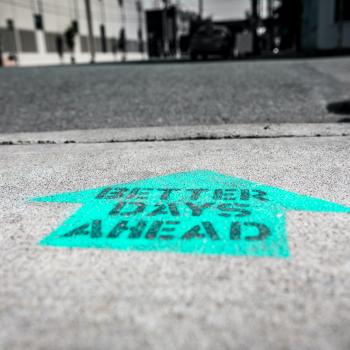There is one reason, and only one reason, that we engage in conflict. We have a lot of different names for this reason. We might say a value is being threatened. Or we might say emotions are triggered. Or we might say our expectations weren’t met. Really, these are three ways of saying the same thing.
We enter into conflict because we have an expectation that has not been met. An expectation based on our values. We have formed a worldview based on our hopes and experiences. And when something happens that violates that worldview, we enter into conflict. Our relationships are full of this. Disappointment colliding.
Warring Expectations
![]()
Too often, our approach to conflict is to reestablish our expectations, come hell or high water. The other is our adversary and we need to reestablish the expectation, set the world to rights, before we can rightly move on with our existence. This is how we end up estranged from the people we spend the most time with, combative with those we love the most. We are each trying to fight the other, demanding our expectations be fulfilled.
This drives a wedge between us and the people we are in relationship with. It destroys the relationship in hopes of achieving the original expectation. Some of us are so addicted to our expectations, we will destroy everything around us (including ourselves) in pursuit of them.
Decipher Expectations
If we want healthy lives and healthy relationships, we need to find a better way.
The first thing we need to do is understand that our expectations and our identity are not the same thing. We can release the former without compromising the latter. When we marry our ideas and perceptions to the very core of who we are, we leave no room for growth or community. Relationships cannot survive when one (or both) of us believes they are their expectations.
Expectations always fail. There is nobody on Earth who has lived a life that worked out exactly like they thought it would. No one who understands their feelings or their thoughts or their beliefs to the fullest. Expectations are like a mile marker. They let us know where we are but not where we will end up.
Only by understanding this can we then engage in conflict resolution. If we believe our expectations might be flawed, we have a chance of relating. If we believe our perception is already perfect and the world just needs to get on board, we are doomed from the beginning.
When conflict arises, healthy people name their disappointments. They communicate their expectations. They might not have known they were there until the conflict exposes them. When we find ourselves in conflict, it is vital for us to name exactly why we are disappointed. What did we expect that has not matched reality? Where did we get that expectation? What value does it connect to?
Transform Expectations
![]()
Healthy conflict resolution can be defined as this: a relationship working to establish new expectations. Expectations are not bad. They are inevitable. It is good for us to expect certain things, like an absence of violence or mutual respect. But most expectations are just self-serving disappointments.
Conflict resolution builds intimacy. It does this by naming values, emotions, and missed expectations. And then establishing deeper connection and expectation together. Our perception grows and changes through conflict resolution. That is what is scary about it. That is what is beautiful about it.
Sometimes when we are in conflict, I will say to my wife: “Fine, I guess I just won’t say anything anymore.” This is obviously immature. But what it points to is the desire to set a new expectation. She’ll often reply, “I don’t want you to never say anything, just be kind about it and think about how it will affect me.” That is a much better expectation. I might counter with, “Ok, but I need to be able to express the truth about how I feel.” Another good expectation. “Of course,” she might add, “but we need to express how we feel with an understanding that we are on the same team. I’m not your enemy.” A transcendent and transformational expectation for a marriage.
Conflict resolution is about finding true, unifying, and mutually beneficial expectations within a relationship. We do it all imperfectly and conflict is the result. It is also an opportunity to love and grow and transform our lives through transformed expectations.












